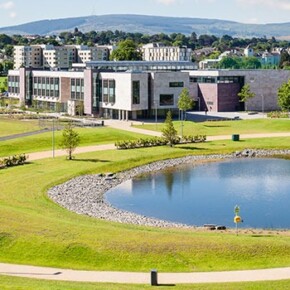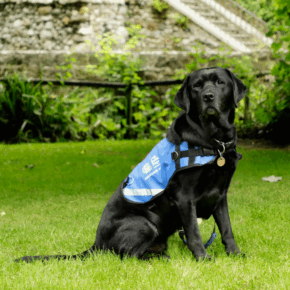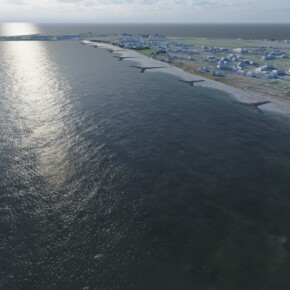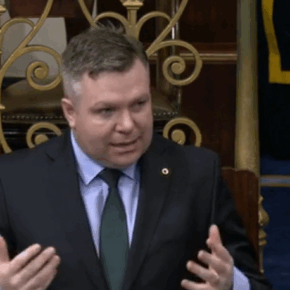Young gun Heneghan goes into government
Mike Finnerty 22 Jan 2025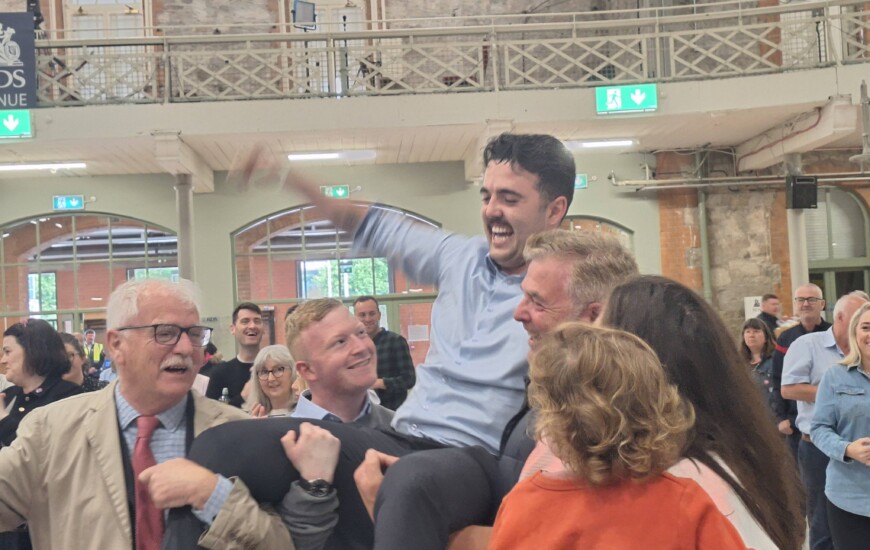
In November’s battle for the five Dáil seats in Dublin Bay North, independent Barry Heneghan shot to national prominence after going from a first-time councillor in June’s local elections to a TD in the space of a few months.
Backed by mentor Finian McGrath (who we incorrectly stated lost his seat in the 2020 general election in last week’s edition; he didn’t run in that general election and we regret the error), Heneghan became one of the breakout stars of the general election.
During his time on Dublin City Council, Heneghan sat with and voted with the left-wing opposition on the council made up of Sinn Féin, the Social Democrats, People Before Profit and other left-wing councillors and called a much-praised meeting in October where he called for Dublin City Council to combat misinformation in the wake of far-right misinformation campaigns surrounding immigration.
Heneghan received 3,602 first preferences or 5.5% of first preferences in the general election but rode a wave of transfers from Sinn Féin (1728), Labour (979) and Aontú (904) to deny the big three parties a chance at a second seat in the constituency and booked him a ticket to the Dáil.
Heneghan joined a motley crew of Dublin Bay North TDs; Cian O’Callaghan of the Soc Dems and Denise Mitchell of Sinn Féin will fight Dublin Bay North’s corner from the opposition benches while Fianna Fáil’s Tom Brabazon, Fine Gael’s Naoise Ó Muirí and now, independent Barry Heneghan will attempt to deliver for the constituency at a government level.
When the post-election mathematics dictated that the new Fianna Fáil and Fine Gael government needed just two independent or like-minded TDs to back them; few expected Heneghan to be one of those TDs who backed the new government after receiving support from left-wing or progressive candidates but December quickly revealed Heneghan’s true intentions.
Heneghan joined a technical group of regional independents with fellow independents such as Michael Lowry, Gillian O’Toole, Kevin “Boxer” Moran and Aontú’s two TDs Peader Tóibín and Paul Lawless.
This technical group is now embroiled in a row over wanting to both support the government on key votes and also be granted more speaking time in the Dáil at the expense of the opposition.
A self-described “left-wing” TD, an interview on Virgin Media on the morning of Thursday, January 16 saw Heneghan defend his negotiation with the new government, and specifically, the involvement of Michael Lowry in negotiations that will see independents back the new government.
“The whole issue with Michael Lowry happened two years before I was born and there’s been a lot of waste of taxpayers money going into it; at this stage now, do you not think we should not just keep on and think about what I care about, which is disability, mental health, Beaumont Hospital’s new A&E,” he posited.
Heneghan asserted that Michael Lowry was “very fierce” in negotiations and that the people of Dublin Bay North “will be very happy if we can deliver on the key targets that I ran on.”
In the same interview with Virgin Media, he said that the Northside has less investment relative to the Southside in terms of sporting facilities.
“North Dublin has been neglected for way too long; if you look at the sporting facilities for example and compare the amount of running tracks on the Northside and Southside, look at the Poolbeg Towers, they were painted on the Southside before the Northside!”
Heneghan is now backing the same government parties which by his own admission, have failed to invest in sporting facilities for the Northside and failed to tackle outstanding issues in the likes of health and disability.
Over the last 15 years, two Northsiders (Leo Varadkar and James Reilly) have served as Minister for Health for five of those years, while outgoing Taoiseach Simon Harris served as Minister for Health for four of them.
Despite Henegehan campaigning on wanting to improve healthcare systems in Dublin Bay North, the independent TD is now backing the parties which by his definition have caused failings and issues in the healthcare service to begin with and have exacerbated a gulf in quality between the Northside and Southside.
The Dáil will meet on Wednesday, January 22 to formally certify Micheál Martin’s second stint as Taoiseach (he will remain in the slot until November 2027, at which stage whoever the Fine Gael leader at that time will take up the role) and Heneghan will begin his Dáil career on the backfoot.
For a TD with such a meteoric rise, all eyes are now on Heneghan if he will suffer the same fate as the 2016 class of independents which were wiped out in 2020.
The 2020 election was defined by high-profile independents such as Shane Ross, Katherine Zappone and Kevin Moran losing their seats having served as junior ministers in the 2016 to 2020 government.
Heneghan’s own mentor and director of elections Finian McGrath (which, as we erroneously stated, did not lose his seat in that general election and instead simply did not run) served as a junior minister in the 2016 to 2020 government, with a high-profile role as Minister of State with responsibility for disabilities.
November’s general election hinged on Simon Harris’ ill-fated interaction with a disability worker in Kanturk; the next government will be acutely aware that disability issues are a sensitive topic and raw nerve with the public.
Heneghan, for his part, is now backing (both implicitly and explicitly) the same parties he obstinately ran against at a local and national level.
2025 is only three weeks old and we already have a front-runner for Dublin’s hottest political story of the year.


